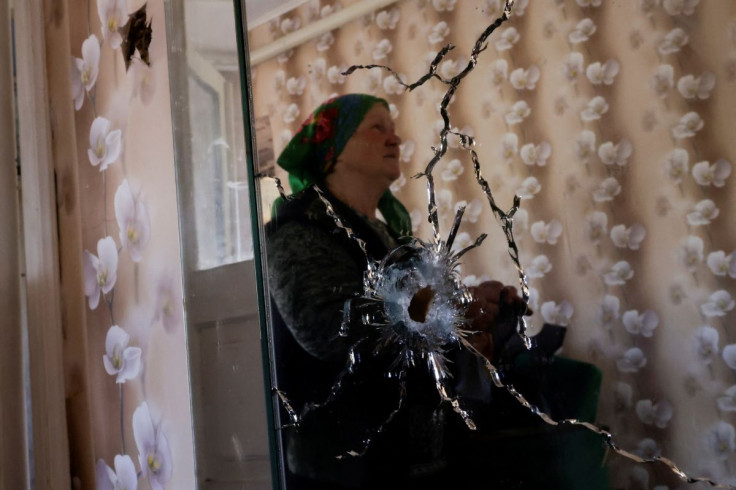Along Ukraine Front, The Villagers Who Didn't Leave Are Ghosts In The Wasteland

Most people have long since left the village of Mala Tokmachka, in Ukrainian-held territory a couple of kilometres from the frontline in southern Ukraine's Zaporizhzhia region.
But not Anna, a lanky, middle-aged, 25-year army veteran with close-cropped hair, who has no place to go.
"I am a military person. My entire life I carried a pistol on my belt. Fear or no fear we must hold on," she told Reuters, explaining her decision to stay. "My husband also used to be in the military, but he is paralyzed. Where would I go with a paralyzed man?"
Anna rattles off a list of the things nobody has any more around here.
"There is no electricity, there is no water, there is no gas," she says. There are no shops, not even a kiosk.
"I have no idea how people have survived here for the past four months. We are trying to hold on."
Five months into Russia's invasion, ordinary life has largely returned to the capital Kyiv and other northern cities where Russian forces were driven away.
Further east, in the active battle zone of the Donbas, there is a hot war raging, with Ukrainians fleeing towns and cities in the path of Russia's ferocious advance.
But along a much longer stretch of hundreds of kilometres of frontline that winds through the south and east, lie countless ghost villages like Mala Tokmachka.
Armies are not trying to push through here, though shells still land occasionally, fired from Russian positions captured early in the conflict. Of the 2,500 people who lived here before the war, only about 500 are left behind.
No one is tending the fields, no one is minding the old shops, no one is clearing away the furniture and torn clothing scattered in the ruins of abandoned homes. A community of people still somehow survives, like ghosts in the wasteland.
"Farmers cannot harvest their crops. I am an agriculture worker myself. And it is painful to look at the fields. But what can one do? People are afraid to go to the fields. People do not harvest crops even next to their own homesteads," said Mykola Skarupilo, 67.
He, too, is not leaving. He has an elderly mother who doesn't want to go.
"I got used to it. If my mother says that she will not go anywhere, why would her son be afraid to stay?" he said. "Yes, I was born here and I will die here, but will not go anywhere."
(Writing by Peter Graff; Editing by Raissa Kasolowsky)
© Copyright Thomson Reuters 2024. All rights reserved.





















